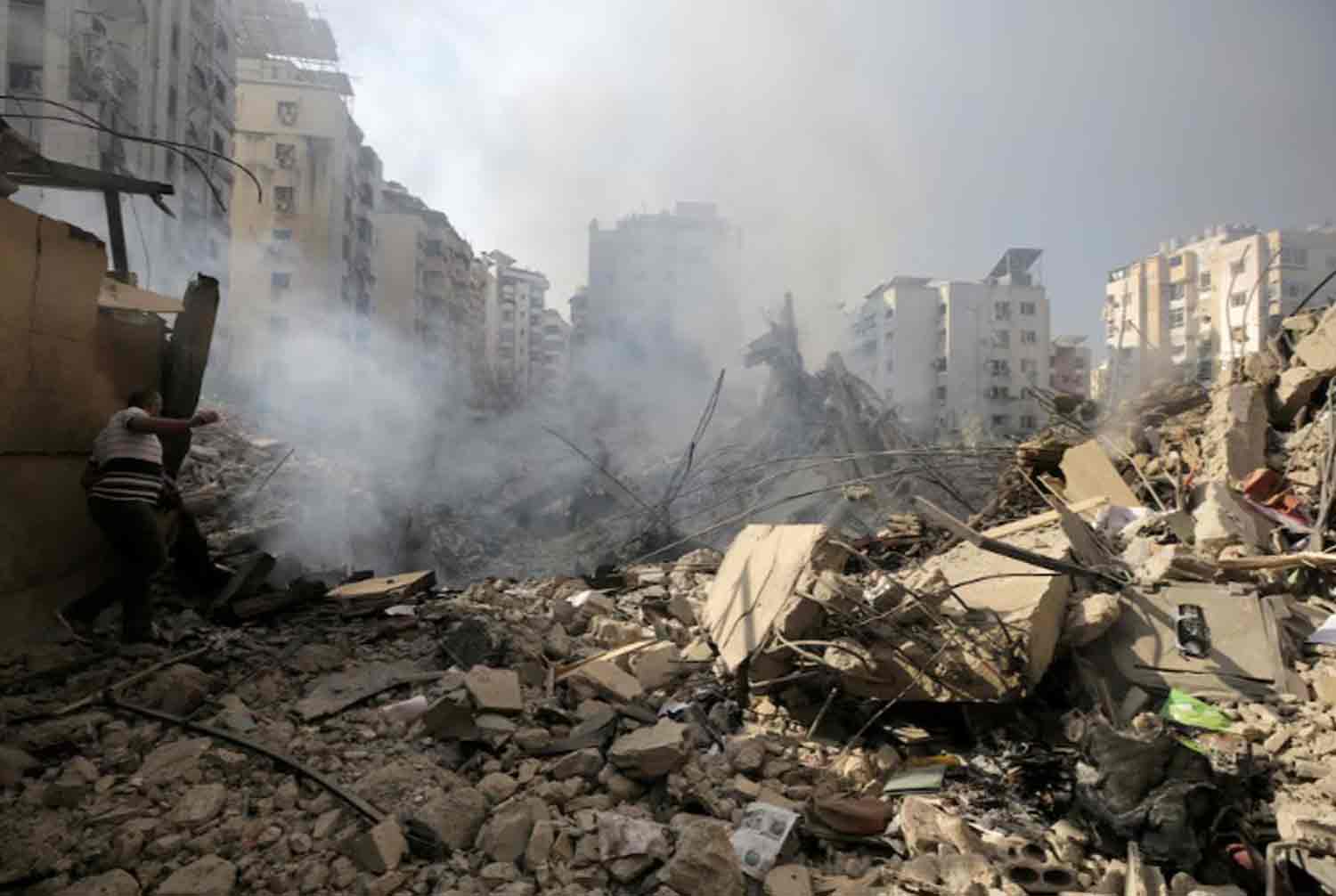Israel is progressing towards a ceasefire in its conflict with Hezbollah, although several issues remain unresolved, according to statements from its government on Monday. Meanwhile, Lebanese officials expressed cautious optimism, emphasizing that Prime Minister Benjamin Netanyahu‘s reliability is in question.
The Israeli ambassador to the United States indicated that a potential agreement could be reached within days. CNN reported that Netanyahu has given preliminary approval to the developing deal, although Israel still harbors concerns regarding certain aspects.
As diplomatic efforts continue, hostilities have escalated. Over the weekend, Israel conducted significant airstrikes, one of which resulted in the deaths of at least 29 individuals in central Beirut. In response, Hezbollah launched one of its largest rocket attacks to date, firing 250 missiles on Sunday.
On Monday, Israeli airstrikes further devastated Hezbollah-controlled areas in southern Beirut, creating large clouds of debris over the city.
Last week, efforts to secure a truce seemed to gain momentum when U.S. mediator Amos Hochstein announced substantial progress following discussions in Beirut, which were followed by meetings in Israel and a return to Washington.
“We are heading towards a deal, but there are still some matters to resolve,” stated Israeli government spokesperson David Mencer, without providing further details.
Michael Herzog, Israel’s ambassador in Washington, informed Israel’s GLZ radio that an agreement is imminent and “could occur within days… We just need to finalize the last details,” as reported by GLZ senior anchorman Efi Triger on X.
In Beirut, Deputy Parliament Speaker Elias Bou Saab indicated that a critical juncture is nearing, expressing a sense of cautious optimism. He noted, “The balance is slightly leaning towards the possibility of an agreement, albeit marginally, as one cannot place trust in a figure like Netanyahu.”
Additionally, a second high-ranking Lebanese official, who requested anonymity, mentioned that Beirut has not received any new demands from Israeli representatives through U.S. mediators, who are characterizing the current atmosphere as positive and indicating that “progress is being made.”
The official informed Reuters that a ceasefire could potentially be established within this week. The conflict between Israel and Hezbollah escalated into a full-scale war in September, following Israel’s offensive actions, which included extensive airstrikes across Lebanon and troop deployments in the southern region.
Israel has inflicted significant damage on Hezbollah, resulting in the deaths of its leader Sayyed Hassan Nasrallah and other senior commanders, alongside widespread destruction in areas under Hezbollah’s influence.
Diplomatic efforts are concentrated on reinstating a ceasefire in accordance with U.N. Security Council Resolution 1701, which concluded the 2006 war between Hezbollah and Israel. This resolution mandates that Hezbollah withdraw its fighters approximately 30 kilometers (19 miles) from the Israeli border.
“absolute victory”
Israeli Foreign Minister Gideon Saar emphasized that the effectiveness of any agreement hinges on the enforcement of two critical aspects.
“The first aspect is to prevent Hezbollah from advancing south of the Litani River, and the second is to stop Hezbollah from rebuilding its military capabilities and rearming throughout Lebanon,” Saar stated during a broadcast to the Israeli parliament.
Far-right National Security Minister Itamar Ben-Gvir insisted that Israel must continue its military operations until achieving “absolute victory.” In a message directed at Netanyahu on X, he remarked, “It is not too late to halt this agreement!”
Conversely, Agriculture Minister Avi Dichter advocated for reaching a consensus regarding Lebanon. “When we assert that Hezbollah must not be positioned south of the Litani, we are serious about it,” he conveyed to reporters.
Hezbollah leader Sheikh Naim Qassem indicated last week that the group had assessed and provided input on the U.S. ceasefire proposal, asserting that the decision for any truce now rests with Israel.
Designated as a terrorist organization by the United States, the heavily armed Shi’ite group Hezbollah has backed Parliament Speaker Nabih Berri of the Shi’ite Amal movement to lead negotiations.
Israel’s objective is to facilitate the return of tens of thousands of individuals who were evacuated from northern areas due to rocket fire from Hezbollah, which began its attacks in support of Hamas at the onset of the Gaza conflict in October 2023.
The ongoing Israeli offensive has displaced over 1 million people in Lebanon.
Diplomatic efforts are concentrated on reinstating a ceasefire in accordance with U.N. Security Council Resolution 1701, which concluded the 2006 conflict between Hezbollah and Israel. This resolution mandates that Hezbollah withdraw its fighters approximately 30 kilometers (19 miles) from the Israeli border, while the Lebanese army is to be deployed in the border region.
Discover more from Defence Talks | Defense News Hub, Military Updates, Security Insights
Subscribe to get the latest posts sent to your email.





